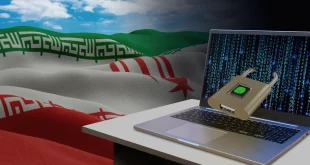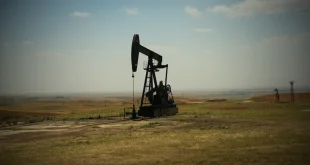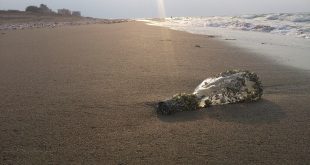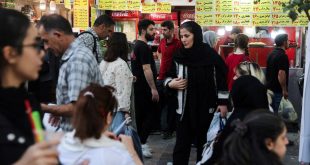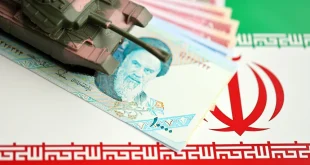Unlike in the Past, This Time the Regime Did Not Sever Access but Instead Degraded Internet Function The Islamic Republic of Iran’s internet blackout against the backdrop of the January 2026 protests is fundamentally different from the shutdowns Tehran imposed during earlier rounds of protests in 2019 or 2022. Unlike in the …
Read More »Syria’s Energy Sector Faces Structural, Not Symbolic, Barriers
Syria Holds an Estimated 2.5 Billion Barrels of Oil and 8.5 Trillion Cubic Feet of Gas but Reserves Do Not Guarantee Recovery Syria’s oil and gas sector once anchored state revenues and energy security. Before 2011, the country produced roughly 380,000 barrels per day of oil and about 25 million …
Read More »Iran’s Desalination Pipeline Is More Stopgap Than Solution
The project fits a long-standing pattern in Iran of improvisation rather than reform On December 6, Iran’s President Masoud Pezeshkian unveiled the country’s latest attempt to mitigate chronic water shortages: an 800-kilometer pipeline carrying desalinated water from the Gulf of Oman to drought-stricken Isfahan. The two-year, 350 trillion rial (about $300 million) …
Read More »The Year in Review: Energy in the Middle East
Across the Region, Electricity Demand Surged with Extreme Heat, Population Growth, Desalination Needs, and Industrial Expansion In 2025, the Middle East’s energy sector held firm amid cooling global markets, geopolitical friction, and an uneven global energy transition. The region continued to underpin global supply, producing roughly 30 percent of global oil and …
Read More »What Turkey’s Moves in Pakistan Reveal About Regional Strategy
With Energy Diplomacy, Ankara Strengthens a Partnership That Stretches Across Military, Cultural, and Now Economic Dimensions On December 2, 2025, Turkey signed hydrocarbon exploration agreements through its state-owned Turkish Petroleum Corporation (TPAO) with six Pakistani energy firms. The announcement came with almost no political theater, but the implications run deeper …
Read More »The Lukoil-West Qurna-2 Case Exposes Iraq’s Strategic Vulnerabilities
The Project That Once Balanced Russian Expertise with Iraqi Sovereignty Now Exposes the Fragility of This Set-up Western sanctions have reshaped Iraq’s oil sector. In October 2025, the United States and United Kingdom targeted Lukoil and Rosneft’s overseas operations to curtail Moscow’s war financing. Lukoil promptly declared force majeure at West Qurna-2, which …
Read More »Caspian Sea Decline Harms Iran and Raises Regional Tensions
The Caspian coast of Iran is at a turning point, where environmental deterioration, economic losses, and geopolitical tensions collide Climate change, increased evaporation, and decreased inflows from feeder rivers like the Volga are contributing to a dramatic and rapid drop in water levels in the Caspian Sea, the world’s largest inland …
Read More »Can Turkey Become a Rare Earth Element Power?
Independent Certification of Reserves and Scaled-up Processing Would Elevate Turkey’s Role in Global Supply Chains of Critical Minerals Turkish President Recep Tayyip Erdoğan frames the supposed discovery of 694 million tons of rare earth element reserves in Beylikova, Eskişehir, as a strategic opportunity to place Turkey among the top global producers of rare earth …
Read More »Iran risks severe economic downturn, unrest as renewed UN sanctions bite
By Parisa HafeziOctober 22, 20257:59 AM GMT+3Updated 3 hours ago DUBAI, Oct 21 (Reuters) – Iran’s economy is at risk of simultaneous hyperinflation and severe recession, officials and analysts say, as clerical rulers scramble to preserve stability with limited room to manoeuvre after a snapback of U.N. sanctions. They followed a breakdown …
Read More »Will Iran Get off the Financial Action Task Force’s Blacklist in 2025?
Continued Blacklisting and Enhanced Sanctions Would Hinder Iran’s Trade Contacts, Foreign Investment, and Access to Financial Institutions The Financial Action Task Force (FATF), the international body charged with combatting money laundering and terror finance, placed Iran on its blacklist in 2007 because of its failure to address weaknesses in its …
Read More »
